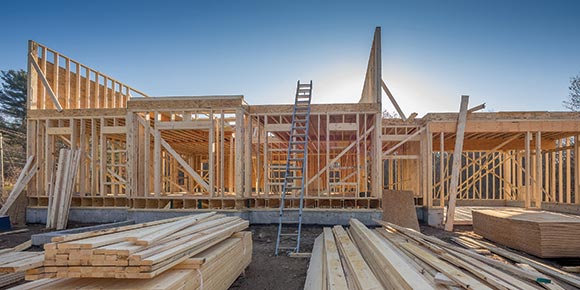A representative from WinnipegREALTORS®
attended the Manitoba Home Builders Association (MHBA’s) developer and planner panel discussion held as part of their annual November housing forum. He could not concur more with MHBA’s CEO Lanny McInnes (see column below) that it will be critical going forward for industry stakeholders within the Winnipeg Metropolitan Region to work closer together and in a more cooperative manner to properly plan for
future development and growth.
By Lanny McInnes
One area WinnipegREALTORS® can be very helpful in as an active participant in the City of Winnipeg’s OurWinnipeg review, residential growth strategy and infill strategy is to provide solid market data on residential sales activity happening in Winnipeg and the surrounding rural municipalities. Good two-way dialogue needs to be fostered and a key way to improve it is by having reliable and accurate information everyone understands and can agree upon. One of the highlights from this year’s Manitoba Home Builders’ Association (MBHA) annual housing forum and building trade show was an informative and insightful panel discussion on residential development in the Winnipeg metro region.
The panel discussion took place Nov. 6 and featured four local land-development and urban-planning experts. The panellists shared their thoughts and insights with the housing forum attendees on trends, challenges and what residential development may look like over the next two years and beyond in and around Winnipeg.
Why was this an important discussion to have? With the Winnipeg metro region’s population expected to grow to more than one million people by 2040, understanding how we need to collectively plan for growth in a way that enables Winnipeggers to live, work and play in a prosperous and sustainable city is key to meeting our future needs as a community.
With a new city council having just been elected, the decisions and actions undertaken by council over the next four years will be extremely important in determining how our community will grow to one million people over the next 20 to 25 years.
The panel discussed important topics such as recent housing trends in Winnipeg’s newer communities, residential land supply in the capital region, Winnipeg’s infill and corridor development strategy and dispelling many of the myths around residential development and growth. The panellists provided great insight on these topics, while clearly demonstrating a willingness for the development community and city administration to work together in collaboration to plan Winnipeg’s growth in a mutually beneficial and sustainable way.
This panel discussion was also a good barometer of the impact of the Urban Development Institute of Manitoba’s plan for growth forum held six months ago. At that forum, Winnipeg’s developers and the city’s administration committed to working in greater collaboration. The first step identified was to work together to compile sound data and information key to developing a fact-driven plan that lays out how Winnipeg will grow to a million people, and identifying where development can and will take place. Work by both city administration and the developer community continues on this important front.
The City of Winnipeg’s review of the OurWinnipeg plan, the city’s municipal development plan, is well underway and a revised version is expected to come forward in 2019. The new OurWinnipeg plan will impact residents in Winnipeg’s older established neighbourhoods as well the newer neighbourhoods on the outskirts of the city. Understanding how and where we as a community will grow allows for investing in our city’s future, and the largest single investment most families make in their lifetime is for their home.
Winnipeg needs an inclusive and fact-based plan for growth. Our city needs an approach to growth that drives both economic and residential growth in a sustainable way and that is followed and implemented by our civic government to encourage confidence and investment.
The residential construction sector has been advocating for this approach, and it is encouraging that work and open dialogue between Winnipeg’s development community and city planners continue to help build stronger relationships and to share important local information with each other.
The MHBA will continue to foster, promote and support events that bring developers and planners together to work together and have discussions based on accurate local data.
Lanny McInnes is president of the Manitoba Home Builders’ Association.
(Originally published in the Winnipeg Free Press).



